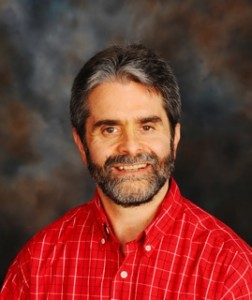Transformational Leadership – Part 2
In part one of this series on the 12 distinctive attributes of transformational leadership we discussed what transformational leadership is, as well as why and where it is needed. In part two we will identify and develop the 12 transformational leadership attributes of the following seven biblical figures: Moses, Joshua, David, Nehemiah, Jesus, Peter, and Paul.
Here are some of the key distinctive attributes of these men.
Distinctive Attributes of Transformational Leaders
1. They were common people
o Each came from fairly ordinary stock. Paul was a little out of the norm in terms of his membership in the Jewish ruling class, and Moses had a royal upbringing until he fled to the wilderness for 40 years. Their calling into leadership shows that people of all backgrounds can be transformational leaders.
2. Each leader had an enormous vision focused on bettering people and drawing them closer to God
o They believed so strongly in their visions that they were willing to make great sacrifices to achieve them, sometimes to the point of death.
3. Caring for the needs of individuals was a primary means of fulfilling their vision
o While all of these leaders had bigger than life visions, they did not allow themselves to be removed from ordinary people. They knew the achievement of their visions would come from showing love, compassion, and meeting the needs of individuals.
4. They were team builders and teachers who developed other leaders to move their visions forward
o Developing people by teaching, modeling, delegating, and giving authority were foremost on the minds of these leaders. Jesus sent the seventy out early in his ministry while they knew very little and had almost no experience. Obviously Jesus believed in on the job training.
5. They left nothing to chance in the achievement of their visions
o They did not let their followers deviate from the vision. If they did, the consequences were severe. As an example, Nehemiah severely reprimanded and threatened wealthy Israelites for oppressing their poor countrymen.
6. They thought huge thoughts
o They wanted to be constantly growing and moving forward as individuals and leaders. They focused on acquiring godly wisdom in order to become more useful and effective.
7. They depended on the power of prayer
o This reliance on prayer was a strong acknowledgment of their need to be connected to God as well as their dependence on Him for direction and power.
8. They lived and modeled their message
o They didn’t expect to be treated any differently than anyone else, and they didn’t expect anyone else to do anything they wouldn’t do. They walked their talk.
9. They were humble
o They did not put themselves above anyone else, and did not seek their own praise.
10. They were willing to forgive wrongs done against them
o With the exception of Jesus, who had no need to be forgiven, each leader realized he had been forgiven much by God, and was therefore obligated to forgive others.
11. They took risks in order to fulfill their visions and trusted God’s promises to grant them success
o Nehemiah had the courage to ask the king for resources despite the fact that he could have been executed.
o Paul the Apostle often had his life on the line when he would preach the gospel in various cities.
12. They went through periods of intense preparation before becoming leaders
o Moses spent 40 years tending sheep before becoming Israel’s leader.
o David spent years tending sheep before becoming king.
o Paul spent years studying Jewish law under Gamaliel before learning directly from Jesus and becoming an apostle.
Conclusion
In this article we described the 12 distinctive attributes of some key transformational biblical leaders. In Part 3 we will begin applying these attributes to modern day business.
About the Author
 Scott McClymonds recently completed a 24 year stint in the banking industry, where he was a leader in marketing automation and analytics. He is now CEO of Nehemiah Worldwide, a coaching and consulting firm helping Christian entrepreneurs use their businesses as ministry. Scott lives in Fayetteville, AR with his family.
Scott McClymonds recently completed a 24 year stint in the banking industry, where he was a leader in marketing automation and analytics. He is now CEO of Nehemiah Worldwide, a coaching and consulting firm helping Christian entrepreneurs use their businesses as ministry. Scott lives in Fayetteville, AR with his family.
Contact Scott At: http://www.johncmaxwellgroup.com/scottmcclymonds/
